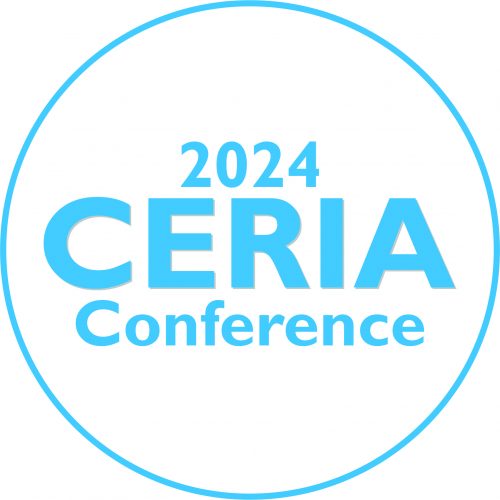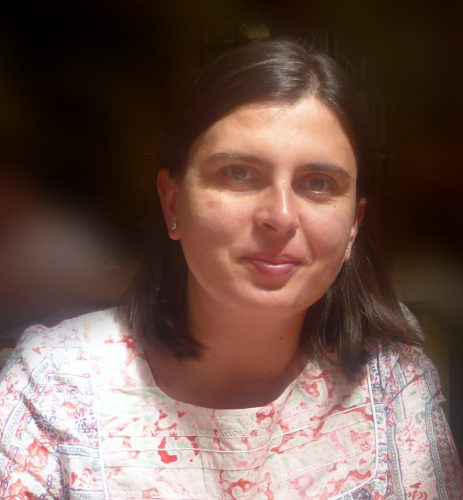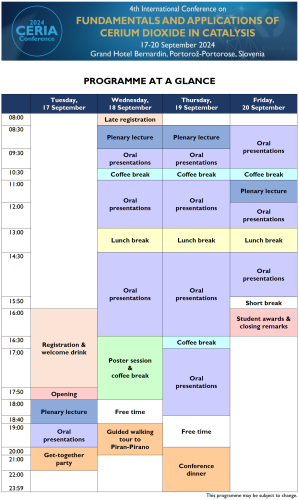Invited speaker- Dr. Sanjay Singh
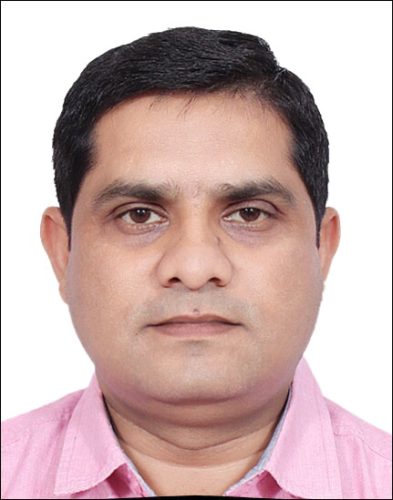
National Institute of Animal Biotechnology, Hyderabad, India
Dr. Sanjay Singh is currently working as Scientist – F at the National Institute of Animal Biotechnology, Hyderabad, India. Dr. Singh has over 20 years of research experience in the area of nanoscience and nanotechnology with especial emphasis on developing novel nanozymes and their biomedical applications. He has contributed immensely to the cerium oxide nanoparticle-based antioxidants for protecting animal cells/tissues from oxidative stress. Dr. Singh has authored over 100 publications, 25 book chapters and two patents. His research work has fetched over 8600 citations and h-index of 44. Dr. Singh has been awarded with prestigious awards including Endeavour Research Fellowship, Yamagiwa-Yoshida Memorial International Award, and EMBO Fellowship. He is also placed in World’s top 2% Scientists list developed by Stanford University and Elsevier since 2020. Dr. Singh has also visited RMIT University, Australia, University of Pennsylvania, USA, and University of Twente, Enschede, Netherlands as visiting faculty.
Invited speaker- Dr. Maria Casapu
Karlsruhe Institute of Technology, Karlsruhe, Germany
Maria Casapu studied Chemistry at the West University of Timişoara, Romania, and received her M. Sc. degree at the same university in 2001. She obtained her PhD degree in 2007 at the Institute for Chemical and Bioengineering of the ETH Zurich, Switzerland, under the supervision of Prof. Dr. Alfons Baiker. Until 2011 she was a post-doctoral researcher in the Catalysis for Energy Group of the Paul Scherrer Institute, Switzerland, with Prof. Dr. Oliver Kröcher. In June 2011 she joined the Chemical Technology and Catalysis group of Prof. Dr. Jan-Dierk Grunwaldt at the Karlsruhe Institute of Technology, Germany, as senior scientist. Since 2012 she is the Chief Scientific Officer of the Exhaust Gas Center Karlsruhe. Her research interest is in the catalytic emission control of mobile and stationary sources based on a fundamental understanding of the catalyst structure and evolution under reaction conditions.
Invited speaker- Prof. Dr. Jing Zhou
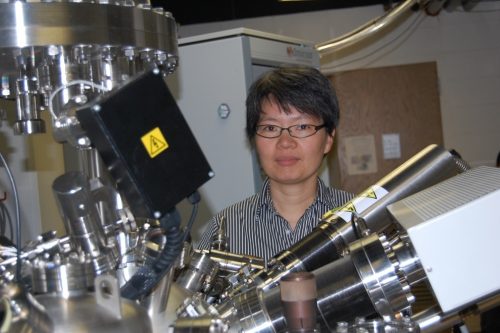
University of Wyoming, Laramie (WY), United States of America
Jing Zhou is a Professor of Chemistry at University of Wyoming (UW). She received her B.S. in Chemistry from Xiamen University in 1997 and her Ph.D. in Physical Chemistry from University of South Carolina in 2004. She then did her postdoctoral work at Oak Ridge National Laboratory prior to joining the faculty at UW in August 2007. She was a visiting scientist in the Chemistry Department at Brookhaven National Laboratory in spring 2015. She was the recipient of the US National Science Foundation Career Award in 2012. Her research interest focuses on the fundamental understanding of structure-reactivity relationships of catalytic materials for energy and environmental applications. In particular, her research group studies the growth and characterization of well-defined ceria thin films, metal-doped ceria, and ceria-supported metal particles under ultrahigh vacuum conditions using combined spectroscopy and microscopy techniques.
Invited speaker- Prof. Dr. Sara Colussi
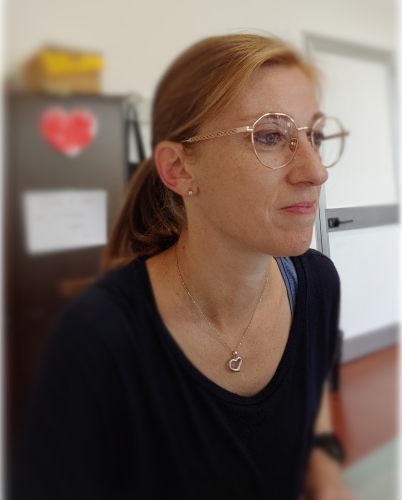
University of Udine, Udine, Italy
Sara Colussi is currently associate professor of Industrial Chemistry at the Polytechnic Department of the University of Udine, and a member of the Catalysis for Energy and Environment group since 2002. She got her Master degree in Chemical Engineering at the University of Trieste in June 2002, and her PhD in Chemical and Energetic Technologies at the University of Udine in May 2006. Her research interests involve palladium-based catalysts, particularly on ceria or ceria-containing supports, for the abatement of methane and VOC emissions from natural gas fueled vehicles, and metal-based catalysts for CO2 valorization reactions. Currently, the mechanochemical preparation of supported catalysts is one of her most relevant research topics. She is author/coauthor of more than 50 international papers in the field of heterogeneous catalysis and presenter at national and international conferences. She serves as a reviewer for several international journals, and is member of the Board of the PhD in Environmental and Energy Engineering Science at the University of Udine.
Plenary speaker- Prof. Dr. José A. Rodriguez
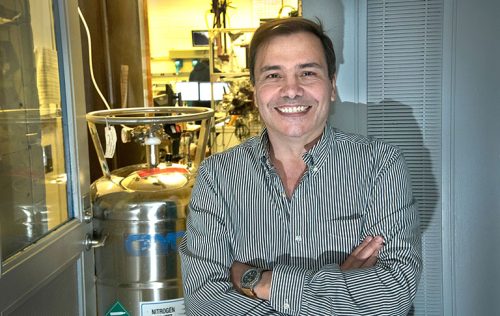
Brookhaven National Laboratory, Upton (NY), United States of America
José A. Rodriguez was born in Caracas, Venezuela. He did his undergraduate education at Simon Bolivar University, receiving BS degrees in Chemistry and Chemical Engineering. After getting a MS in Theoretical Chemistry at Simon Bolivar University, he moved to the United States to get a PhD in Physical Chemistry at Indiana University, Bloomington. Currently, he is a Senior Scientist at Brookhaven National Laboratory and an Adjunct Professor at the Chemistry Department of SUNY Stony Brook. He has co-authored more than 480 articles in the areas of surface science and catalysis and has a H index of 94. His group is doing research in C1 catalysis (Synthesis of C1-C4 alcohols from CO/CO2 hydrogenation, methane activation, the production of hydrogen through the water-gas shift, CO oxidation) and the development of tools for in-situ or operando studies using synchrotron-based techniques.
Plenary speaker- Prof. Dr. Emiel J.M. Hensen
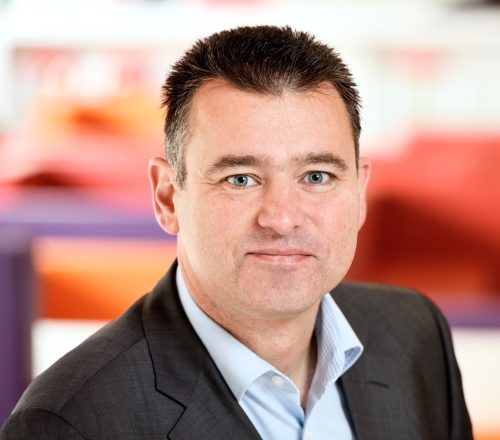
Eindhoven University of Technology, Eindhoven, The Netherlands
Emiel Hensen received his PhD degree in Catalysis in 2000 from Eindhoven University of Technology, The Netherlands. Between 2000 and 2008, he worked at the University of Amsterdam, Shell Research in Amsterdam, and Eindhoven University of Technology on several topics in the field of heterogeneous catalysis. Since July 2009, he has been a full professor of Inorganic Materials and Catalysis at TU/e. He is a principal investigator and a management team member of the gravitation program Multiscale Catalytic Energy Conversion, an elected member of the Advanced Research Center Chemical Building Blocks Consortium, and chairman of the Netherlands Institute for Catalysis Research (NIOK). Hensen was head of the Department of Chemical Engineering and Chemistry at Eindhoven University of Technology from 2016 to 2020. Hensen received Veni, Vidi, Vici, and Casimir grant awards from the Netherlands Organisation for Scientific Research. His main interests are in the mechanism of heterogeneous catalysis combining experimental and computation studies. He has published over 650 papers, 20 book chapters, and 7 patents.
Invited speaker- Prof. Dr. Matteo Cargnello
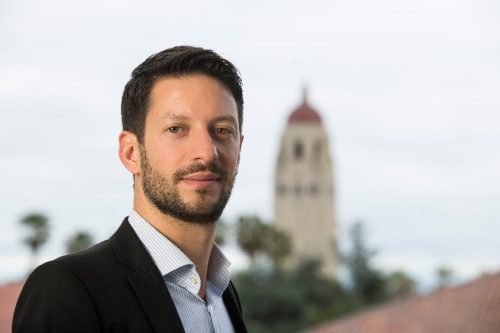
Stanford University, Stanford (CA), United States of America
Matteo Cargnello received his Ph.D. in Nanotechnology in 2012 at the University of Trieste, Italy, under the supervision of Prof. Paolo Fornasiero, and he was then a post-doctoral scholar in the Chemistry Department at the University of Pennsylvania with Prof. Christopher B. Murray before joining the Faculty at Stanford University in January 2015. He is currently Associate Professor of Chemical Engineering and, by courtesy, of Materials Science and Engineering and Vance D. and Arlene C. Coffman Faculty Scholar. Dr. Cargnello is the recipient of several awards including the Sloan Fellowship in 2018, the Mitsui Chemicals Catalysis Science Award for Creative Work in 2020, and the Early Career Award in Catalysis from the ACS Catalysis Division in 2022. The general goals of the research in the Cargnello group pertain to solving energy and environmental challenges. The group focuses on capture and conversion of carbon dioxide, emission control and reduction of methane and hydrocarbon emissions in the atmosphere, sustainable chemical practices through electro- and photocatalysis, sustainable production of hydrogen, and chemical recycling of plastics.
Plenary speaker- Prof. Dr. M. Veronica Ganduglia Pirovano
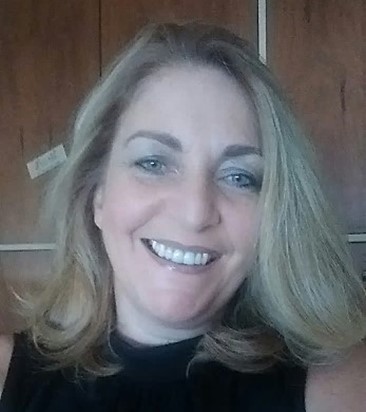
Institute of Catalysis and Petrochemistry, Madrid, Spain
Dr. M. Veronica Ganduglia-Pirovano is the Leader of the Modeling for Theoretical Catalysis Group at the Institute of Catalysis and Petrochemistry (ICP-CSIC) in Madrid. She obtained her Bachelor’s Degree from the Balseiro Institute, National University of Cuyo, S. C. de Bariloche, Argentina and a PhD in Physics from the Max Planck Institute for Solid State Research, University of Stuttgart, Germany. With a vision for specific design of catalytic materials, she has carried out high-level and motivating research projects at Exxon Corporation, Annandale, NJ, USA, the Fritz-Haber-Institute in Berlin, the Center Physics of Materials at the Atomic Scale-DTU, Denmark, and the Humboldt University of Berlin. She is the author of more than 100 publications on computational physical chemistry of surfaces and catalysis, with more than 9500 citations and an h-index of 48 (Google Scholar). She pioneered theoretical work on ceria, metals supported on ceria and the chemistry of small oxide clusters supported on other oxides. Her main contributions continue to be in the reactivity of supported nanoparticles and oxide surfaces, providing deep insight in the structure-function relationships of catalytic materials for energy and environmental applications, as well as in the fundamental physics area associated with cerium oxide catalysis.
Plenary speaker- Prof. Dr. Keiichi Tomishige
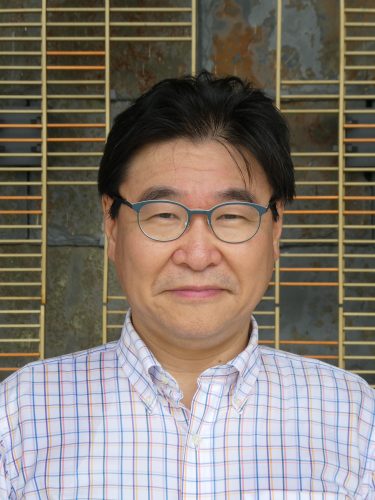
Tohoku University, Sendai, Miyagi, Japan
Keiichi Tomishige received his B.S., M.S. and Ph.D. from Graduate School of Science, Department of Chemistry, The University of Tokyo. During his Ph.D. course in 1994, he moved to Graduate School of Engineering, The University of Tokyo as a research associate. In 1998, he became a lecturer, and then he moved to Institute of Materials Science, University of Tsukuba as a lecturer in 2001. Since 2004 he has been an associate professor, Graduate School of Pure and Applied Sciences, University of Tsukuba. Since 2010, he is a professor, School of Engineering, Tohoku University. His research interests are the development of heterogeneous catalysts for production of biomass‐derived chemicals, reforming of hydrocarbons such as biomass tar and methane. In particular, one of his works is non-reductive conversion of CO2 with alcohols/amines to organic carbonates, carbamates, ureas using CeO2 as a heterogeneous catalyst.
Invited speaker- Prof. Dr. Weixin Huang
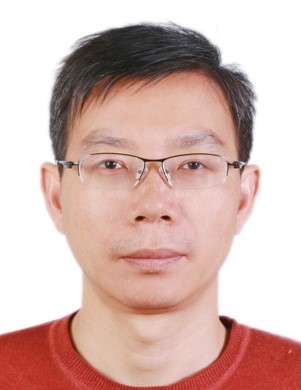
University of Science and Technology of China, Hefei, China
Prof. Dr. Weixin Huang is a Changjiang Professor of Physical Chemistry at the University of Science and Technology of China (USTC), recognised by the Chinese Ministry of Education. He received the Bachelor of Science degree from USTC in 1996 and the Ph.D. degree from Dalian Institute of Chemical Physics in 2001. He then worked at the University of Texas at Austin as a postdoctoral fellow and at the Fritz Haber Institute as a Humboldt fellow. He has been a full professor at USTC since December 2004. His research interests are surface chemistry and catalysis of solid catalysts with well-defined structures ranging from single crystals to nanocrystals. He has been awarded the Humboldt Research Fellowship of the AvH Foundation, the Young Scientist Prize of the 13th International Catalysis Congress, the Young Chemist Award of the Chinese Chemical Society, the Chinese Catalysis Youth Award of the Chinese Catalysis Society, and the Humboldt Research Award of the AvH Foundation. He is an editor of Applied Surface Science and Surface Science and Technology and a member of the editorial boards of Catalysis Letters, Topics in Catalysis, Science China Chemistry, and The Journal of Physical Chemistry A/B/C.

